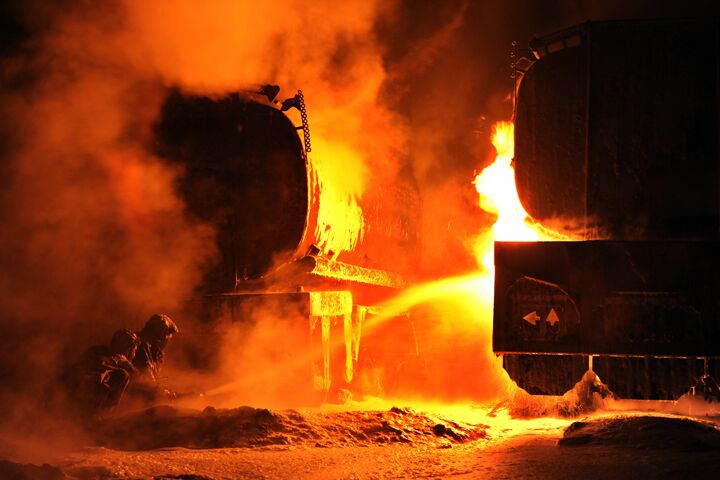
Pakistan: Islamic Terrorists Form Alliance Against Government
Islamic militarism is spreading like blood poisoning throughout the entire country of Pakistan. In February, rival Islamic militant groups announced the creation of a new platform for jihad: Shura Ittihad-ul Mujahideen, or Council of United Holy Warriors. The Taliban groups making up this alliance claim it was created at the behest of Taliban leader Mullah Omar.
The expansion of radical Islamic jihad in the Pakistani tribal regions is driving the entire country toward an abyss. An increasing number of Pakistanis are lending either moral or logistical support to the terrorists even as the civil government falls apart. The American-supported ouster of former Pakistani President Pervez Musharraf only advanced the goals of the militants by removing one of their chief adversaries.
The entire planet could be plunged into a nightmare if radical Islamists get their hands on Pakistan’s nuclear weapons as the result of a government collapse.
“You just can’t say that you’re not going to worry about al Qaeda taking control of Pakistan and its nukes,” said David Kilcullen, an Australian Army reservist and top adviser to Gen. David Petraeus during the troop surge in Iraq.
In an interview with the Washington Post, Kilcullen went on to describe why the current situation in Pakistan should be considered a global problem using the following terms:
Pakistan is 173 million people, 100 nuclear weapons, an army bigger than the U.S. Army, and al Qaeda headquarters sitting right there in the two thirds of the country that the government doesn’t control. The Pakistani military and police and intelligence service don’t follow the civilian government; they are essentially a rogue state within a state. We’re now reaching the point where within one to six months we could see the collapse of the Pakistani state, also because of the global financial crisis, which just exacerbates all these problems. … The collapse of Pakistan, al Qaeda acquiring nuclear weapons, an extremist takeover—that would dwarf everything we’ve seen in the war on terror today.
In the past, when Islamist forces rose up to try to take control of Pakistan, the Pakistani military put down the uprising and restored stability to the nation. Today, however, the Pakistani military itself, and especially the intelligence service, is significantly sympathetic to the Islamists. Outside the Pakistani Army, no Pakistani force exists strong enough to check them.
An April 8 report on Spiegel Online spoke of the Pakistani Army’s dubious sympathies:
The military prefers to avoid serious confrontation with the extremists. Many officers still do not see the Taliban as their enemy. Pakistan’s true enemy, in their view, is India, the country from which Pakistan once seceded and with which it has since waged three wars. There is a relatively common attitude in the military which holds that the fight against terrorism in the northwestern part of the country is being forced upon them by the Americans and that they are fighting the wrong war.
Islamist sympathies among Pakistan Inter-Service Intelligence Agency (isi) officials are also dangerous. Spiegel notes the following:
In a recent article in the New York Times, Obama administration officials were unusually candid in accusing the isi of supporting the Taliban in its struggle against the Western alliance and the Karzai government in Kabul. That support, they said, includes ammunition and fuel, as well as the recruitment of fighters. The officials claimed that wiretapped telephone conversations prove that members of Pakistani intelligence have even given the Taliban advance warning of planned raids.
There are unconfirmed reports that the isi sent $100,000 to Mohammed Atta just before he led the 9/11 hijackers on their mission.
If segments of Pakistan’s army and intelligence services join forces with the Islamic militants, the country could undergo an Islamic revolution similar to the one that seized Iran in 1979. This would put Pakistan’s nuclear arsenal in the hands of a terrorist-sponsoring state.
Editor in chief Gerald Flurry wrote in the January 2008Trumpet: “Pakistanalso has the nuclear bomb and could be taken over by radical Islam, with plenty of help from Iran. That means it could become a proxy of the Iranian mullahs. This would be the worst possible disaster!”
For more information on the future of Pakistan, read “Pakistani Sympathy Grows for Pro-Taliban Militants” and “Pakistan and the Shah of Iran.”
